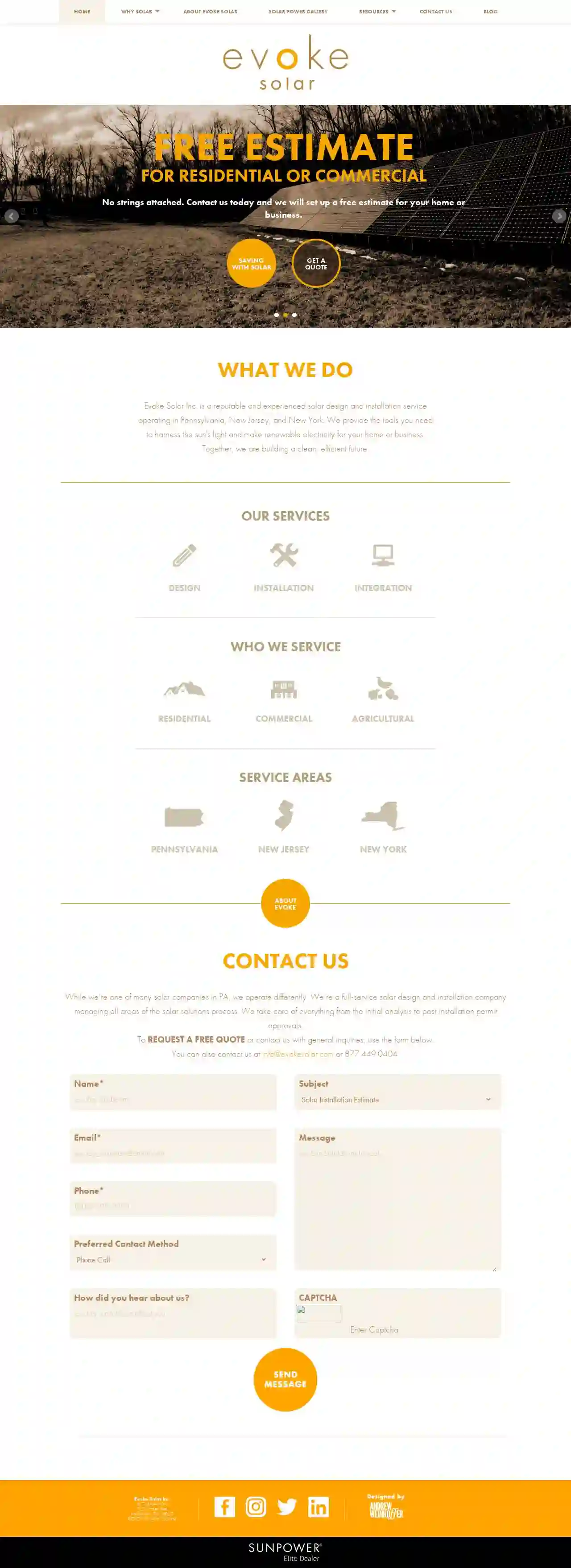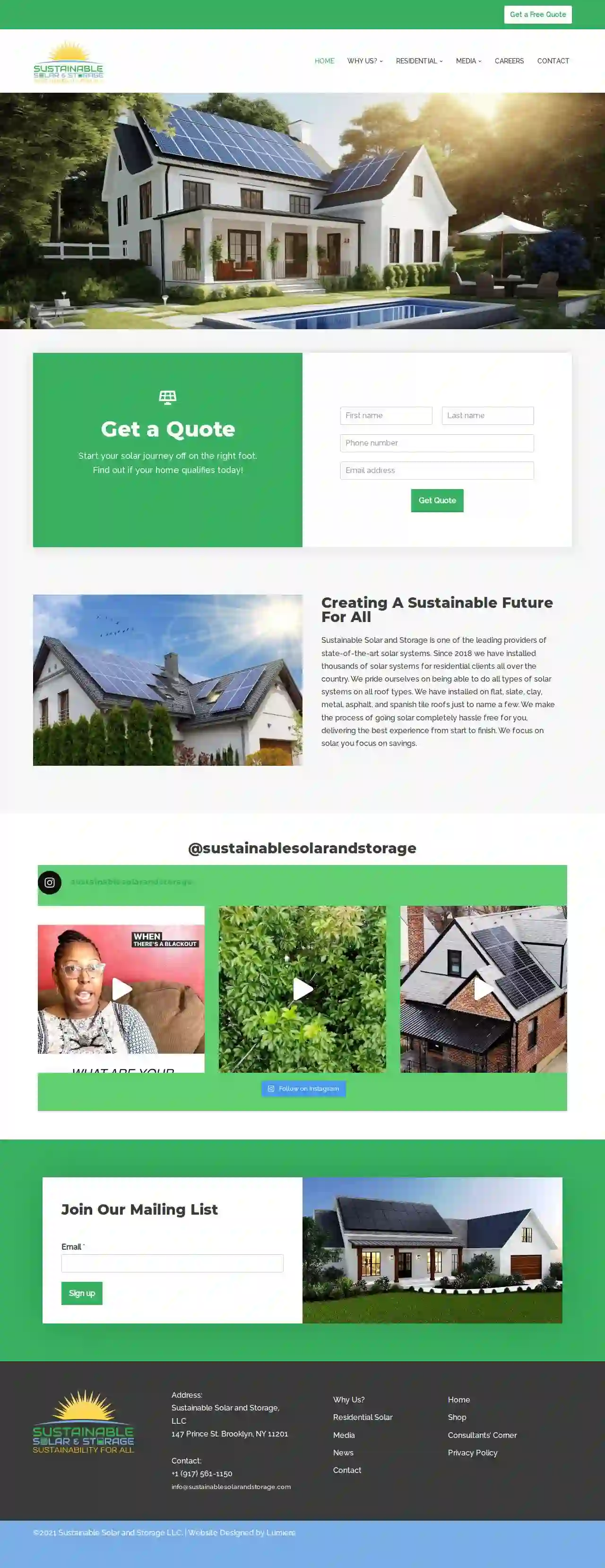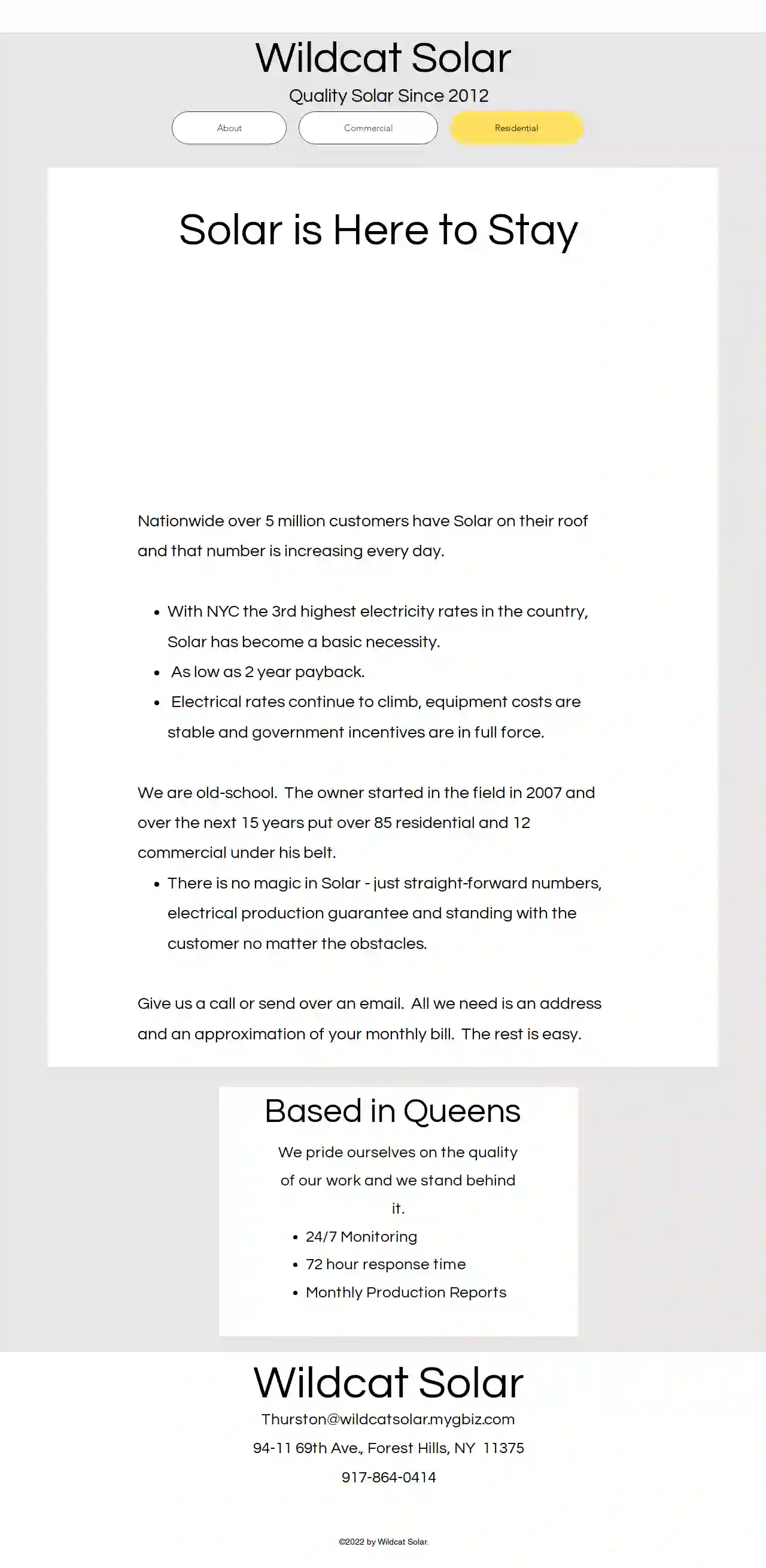Solar Installers Lower Heidelberg
Find the best Solar Panel Installer in Lower Heidelberg
Get multiple Residential Solar Installers quotes for your project today! Compare profiles, reviews, accreditations, portfolio, etc... and choose the best service.

SunLogic Power
512 reviewsAmityville, NY, 599 Albany Ave, Unit C, 11701, USGo SunLogic is a company that helps Long Island families save money and improve the environment by providing solar energy systems, roof replacements, electric vehicle charging stations, and other energy-efficient upgrades. They assist in qualifying for state and federal tax credits and rebates to make going green more affordable.
- Services
- Why Us?
- Accreditations
- Our Team
- Testimonials
- Gallery
Get Quote
EmPower Solar
4.9336 reviews999 Stewart Ave., Suite 210, 999 Stewart Ave. Suite 210, Bethpage, 11714, USEmPower Solar is a leading provider of solar energy solutions, offering a range of services including solar panel installation, battery backup systems, and electric vehicle charging. With a focus on sustainability and energy efficiency, EmPower Solar aims to empower homeowners and businesses to take control of their energy usage and reduce their carbon footprint. Their team of experts provides personalized solutions tailored to each client's needs, ensuring maximum savings and efficiency.
- Services
- Why Us?
- Accreditations
- Our Team
- Testimonials
- Gallery
Get Quote
Evoke Solar, Inc.
4.898 reviewsHellertown, PA, 323 Linden Ave, 18055, USEvoke Solar Inc. is a reputable and experienced solar design and installation service operating in Pennsylvania, New Jersey, and New York. We provide the tools you need to harness the sun's light and make renewable electricity for your home or business. Together, we are building a clean, efficient future.
- Services
- Why Us?
- Accreditations
- Gallery
Get Quote
Sustainable Solar and Storage, LLC
521 reviews147 Prince St. Brooklyn, NY, Brooklyn, 11201, USSustainable Solar and Storage is a leading provider of state-of-the-art solar systems. Since 2018, we have installed thousands of solar systems for residential clients all over the country. We pride ourselves on being able to do all types of solar systems on all roof types. We have installed on flat, slate, clay, metal, asphalt, and Spanish tile roofs just to name a few. We make the process of going solar completely hassle-free for you, delivering the best experience from start to finish. We focus on solar, you focus on savings.
- Services
- Why Us?
- Accreditations
- Our Team
- Testimonials
- Gallery
Get Quote
New Jersey Sun Tech LLC
3.945 reviews187 Main St, 07095, USNew Jersey SunTech is a family-owned and operated company specializing in solar panels for home use with top-quality products and highly-rated solar installers. They provide clean and renewable energy, offer state incentives, and increase home value. Their solar solutions partners include top vendors in the solar power industry.
- Services
- Why Us?
- Accreditations
- Our Team
- Testimonials
- Gallery
Get Quote
Solar Film/Video Productions
4.826 reviews13 East 37 Street, Floor 8, New York, 10016, USSolar Productions is a one-stop production company located in the heart of SoHo in New York City. Our objective is to meet your demands and realize your vision not just as a freelance contractor but as a creative partner. Clients come to us for the quality and energy put into each project by our hard working team of creative professionals who enjoy their work. We are equipped to handle a project from concept and filming to editing, audio post production and multi-media.
- Services
- Why Us?
- Accreditations
- Our Team
- Testimonials
- Gallery
Get Quote
Go Solar New Jersey
54 reviews3304 Sylon Blvd #2, Hainesport, NJ, 08036, USGo Solar New Jersey is a leading solar company dedicated to providing sustainable and green energy solutions to New Jersey residents. Our team of professionals offers comprehensive solar analysis, installation, and activation services, ensuring a smooth transition to solar power. We also provide resources on solar incentives, tax rebates, and programs designed to make solar energy affordable and accessible.
- Services
- Why Us?
- Accreditations
- Our Team
- Testimonials
- Gallery
Get Quote
Wildcat Solar
Forest Hills, NY, 94-11 69th Ave., New York, 11375, USWildcat Solar is a solar energy company based in Queens, New York, that has been providing quality solar services since 2012. They offer both residential and commercial solar solutions, with a focus on providing customers with a basic necessity in the face of increasing electricity rates. The company prides itself on its commitment to quality work and customer satisfaction, offering 24/7 monitoring, a 72-hour response time, and monthly production reports.
- Services
- Why Us?
- Accreditations
- Our Team
- Gallery
Get Quote
CS Energy
4.29 reviewsEdison, NJ, USA, 2045 Lincoln Highway, 08817, USCS Energy is a leading renewable energy company that develops, designs, and builds solar, storage, and emerging energy projects across the U.S. The company focuses on safety, certainty, and expertise, with a customer-focused approach. CS Energy has built an exceptionally dedicated and collaborative team and is always looking for talented individuals to join them and execute their mission.
- Services
- Why Us?
- Accreditations
- Our Team
- Testimonials
- Gallery
Get Quote
Pinnacle Exteriors
4.4321 reviewsAllentown, PA, 2222 S 12th St, 18103, USPinnacle Exteriors is a local, family-owned business that specializes in providing top-quality roofing and solar solutions to homeowners in Pennsylvania, New Jersey, and Delaware. Founded in 2009, the company has built a reputation for delivering personalized service, superior products, and comprehensive warranties. Pinnacle Exteriors is dedicated to helping homeowners enhance their homes' protection, energy efficiency, and curb appeal while providing them with the peace of mind that comes with knowing they are working with a trusted, local company.
- Services
- Why Us?
- Accreditations
- Our Team
- Testimonials
- Gallery
Get Quote
Over 4,210+ Solar Companies in our network
Our solar companies operate in Lower Heidelberg and surrounding areas!
SolarCompaniesHub has curated and vetted Top Solar Companies in and around Lower Heidelberg. Find a trustworthy pro today.
Frequently Asked Questions About Solar Installers
- Use a Directory Like SolarCompaniesHub: We connect you with pre-screened, qualified solar installers in your area.
- Check Online Reviews: Look for positive reviews on Google, Yelp, and other reputable sources.
- Ask for Referrals: Get recommendations from friends, family, or neighbors who have gone solar.
- Verify Credentials: Ensure the installer is licensed, insured, and certified by reputable organizations (e.g., NABCEP in the US).
- Get Multiple Quotes: Compare quotes from at least 3-4 installers to find the best value for your project.
- Ask Questions: Don't hesitate to ask installers about their experience, warranties, and the process they follow.
- Your current energy usage
- The size of your solar system
- Your local electricity rates
- The amount of sunlight your panels receive
- Available net metering policies
How do I find a good solar installer near me?
Will solar panels work during cloudy days or at night?
What happens to my solar panels during a power outage?
How much can I save on my electricity bill with solar panels?
How do I find a good solar installer near me?
- Use a Directory Like SolarCompaniesHub: We connect you with pre-screened, qualified solar installers in your area.
- Check Online Reviews: Look for positive reviews on Google, Yelp, and other reputable sources.
- Ask for Referrals: Get recommendations from friends, family, or neighbors who have gone solar.
- Verify Credentials: Ensure the installer is licensed, insured, and certified by reputable organizations (e.g., NABCEP in the US).
- Get Multiple Quotes: Compare quotes from at least 3-4 installers to find the best value for your project.
- Ask Questions: Don't hesitate to ask installers about their experience, warranties, and the process they follow.
Will solar panels work during cloudy days or at night?
What happens to my solar panels during a power outage?
How much can I save on my electricity bill with solar panels?
- Your current energy usage
- The size of your solar system
- Your local electricity rates
- The amount of sunlight your panels receive
- Available net metering policies